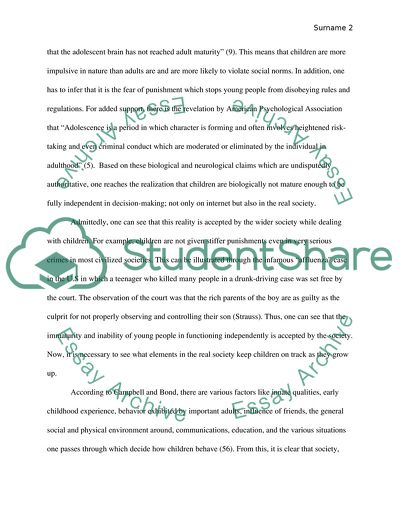Cite this document
(Mandatory Monitoring of Childrens Internet and Social Networking Research Paper, n.d.)
Mandatory Monitoring of Childrens Internet and Social Networking Research Paper. https://studentshare.org/social-science/1818966-documented-research-paper
Mandatory Monitoring of Childrens Internet and Social Networking Research Paper. https://studentshare.org/social-science/1818966-documented-research-paper
(Mandatory Monitoring of Childrens Internet and Social Networking Research Paper)
Mandatory Monitoring of Childrens Internet and Social Networking Research Paper. https://studentshare.org/social-science/1818966-documented-research-paper.
Mandatory Monitoring of Childrens Internet and Social Networking Research Paper. https://studentshare.org/social-science/1818966-documented-research-paper.
“Mandatory Monitoring of Childrens Internet and Social Networking Research Paper”. https://studentshare.org/social-science/1818966-documented-research-paper.


